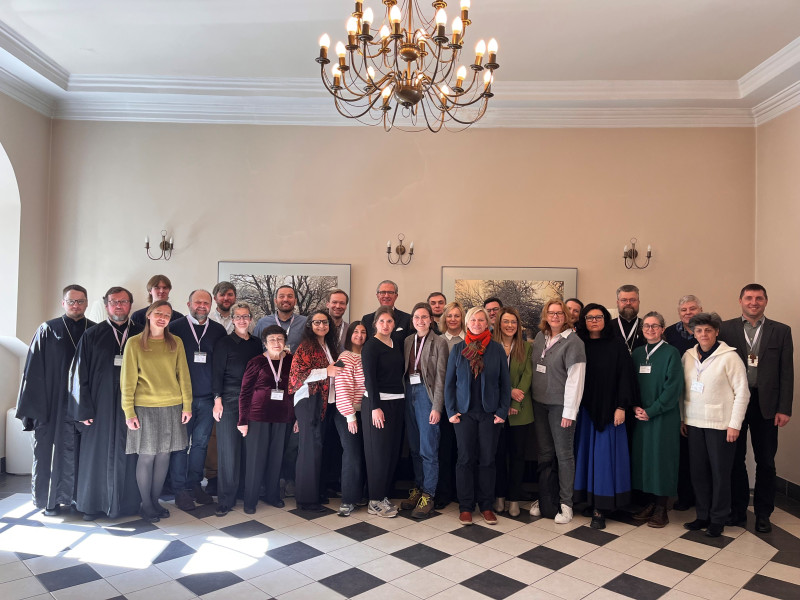
Photo: PRO ORIENTE
The Conference of European Churches (CEC) contributed to advancing dialogue by supporting the International Workshop on Healing of Wounded Memories, held from 27 to 30 March 2025 in Vilnius, Lithuania. Organised by PRO ORIENTE, in cooperation with Renovabis, the workshop gathered church leaders, theologians, and communication experts under the theme: “Ecumenical Challenges in the Digital Age – Context, Experiences, Practice.”
The event explored how churches and communities engage with history—especially in contexts marked by conflict, polarisation, and the misuse of religious narratives. It discussed responses to hate speech and disinformation in a digitalised world.
Dr Viola Raheb, Programme Director of PRO ORIENTE, welcomed the active engagement of representatives, especially from Ukraine, Belarus, and Russia, and commended PRO ORIENTE’s partnership with CEC in fostering dialogue and promoting peace.
A key voice at the workshop was Dr Pavlo Smytsnyuk from Ukraine. He is a member of CEC’s Pathways to Peace Steering Group and Petrach Fellow at the George Washington University. Reflecting on Christian theology and the legacy of wounds, he remarked:
“Wounds hold a special significance in Christian theology and imagination. When the Risen Christ appears to Thomas, the apostle is invited to place his fingers into the Lord’s wounds... The veneration of martyrs reveals not only the values to be cherished but also, and more importantly, who the ‘other’ is that one should beware of.”
He warned that unhealed wounds can shape collective identity in ways that perpetuate division and justify harm.
“Before we can talk about healing, we must understand why communities often cling to their wounds—and what conditions allow them to begin the process of letting go,” he added.
The workshop addressed several pressing issues: the weaponisation of religion during war, the portrayal and manipulation of religion in the media, and the challenge of confronting hate speech in digital spaces. Sessions also examined how trauma, digital communication, and reconciliation intersect in today’s world.
Belarusian theologian and activist Ms Natallia Vasilevich, also a member of the Pathways to Peace Steering Group, shared practical examples of socially engaged work on digital platforms. Vasilevich, who is also a PhD candidate at the University of Bonn, showed how faith-based actors can harness digital tools to counter polarisation and promote inclusive public discourse.
"It is crucial to address the most pressing and controversial issues that arise in times of war—such as the tension between human rights and state security, inter-Orthodox relations in the context of Ukraine and beyond, the support of military defense versus the right to conscientious objection, the challenges of information warfare versus journalistic standards, and the legitimacy of armed resistance versus non-violent pacifism," said Vasilevich.
"Avoiding these difficult conversations only deepens the wounds of suffering individuals and communities. At the same time, such issues must be discussed with sensitivity and care, within safe spaces. Creating these safe spaces is one of the vital roles of the ecumenical movement," she added.
Through initiatives such as Pathways to Peace, CEC continues to affirm its commitment to peacebuilding, reconciliation, and dialogue across Europe. By supporting collaborative efforts such as this workshop, CEC works alongside churches, ecumenical partners, and European institutions to promote healing, reconciliation, and shared responsibility in a fractured world.